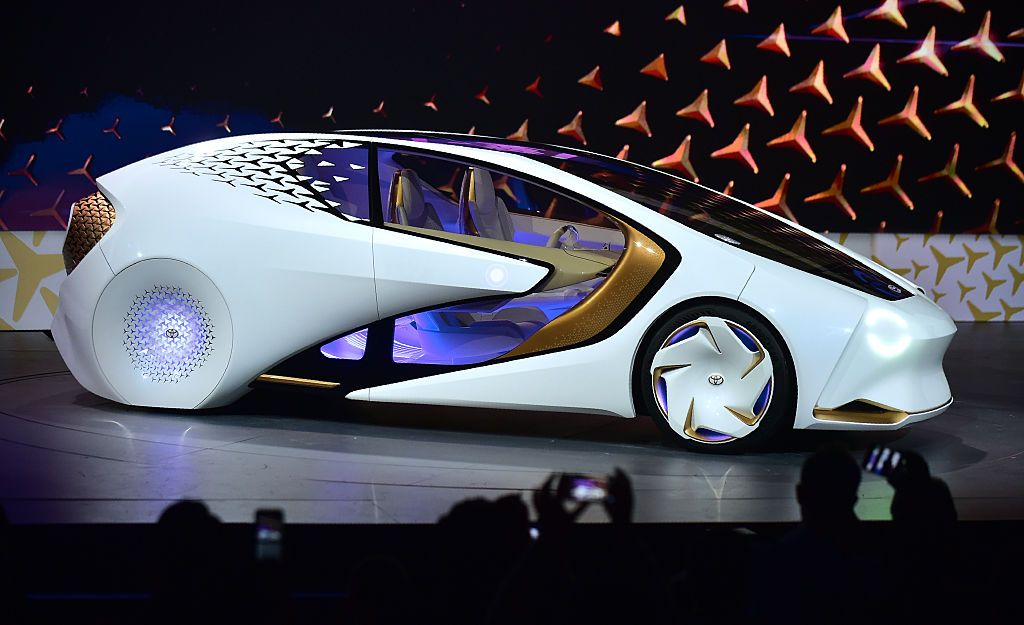"Styled by Ghia's Sergio Sartorelli with assistance from American Tom Tjaarda" is how this article summarizes the 1961-1969 Volkswagen Karmann-Ghia Type 34 design's origin. Total production of the Type 34 was about one-tenth that of the original Karmann-Ghia launched in 1955 and manufactured until 1975. Clearly, something went wrong.
Volkswagen introduced its new, larger Type 3 in 1961 and the Type 3-based Type 34 Karmann-Ghia was soon added to the product line. More information on the Type 34 is here (scroll down).
Type 34s were fairly expensive, but to my mind the reason they sold poorly was the styling. Bear in mind that the original Karmann-Ghia is widely considered to be a classic design, so matching its quality would have been difficult. The Ghia stylists instead opted for a considerably different theme based roughly on the "three box" format that was into its long design fashion reign. That in itself was not necessarily a problem. What went wrong was the detailing.
1955 Volkswagen Karmann-Ghia -- the original, classic version by Luigi Segre using some features by Chrysler's Virgil Exner.
1961 Volkswagen Karmann-Ghia Type 34. Like the original, it had a rear-mounted air cooled motor, and that influenced its proportions. The side character line is split into two segments, perhaps to introduce variety. If they had to be there, they should have been offset vertically to add even more interest to an otherwise fairly static feature.
The greenhouse has plenty of glass. Probably too much, as a thicker C-pillar with a wider base than top would have better integrated the greenhouse with the main body. The aft end reminds me of the first Chevrolet Corvair's.
The most serious styling problem is at the front. The curved character lines that wrap around to the sides form a pattern that is both questionably arbitrary and at odds with the basic body shaping. My guess is that the idea was to harken a relatively squared-off zone to the rounded prow of the first Karmann-Ghias. Big mistake.
"Styled by Ghia's Sergio Sartorelli with assistance from American Tom Tjaarda" is how this article summarizes the 1961-1969 Volkswagen Karmann-Ghia Type 34 design's origin. Total production of the Type 34 was about one-tenth that of the original Karmann-Ghia launched in 1955 and manufactured until 1975. Clearly, something went wrong.
Volkswagen introduced its new, larger Type 3 in 1961 and the Type 3-based Type 34 Karmann-Ghia was soon added to the product line. More information on the Type 34 is here (scroll down).
Type 34s were fairly expensive, but to my mind the reason they sold poorly was the styling. Bear in mind that the original Karmann-Ghia is widely considered to be a classic design, so matching its quality would have been difficult. The Ghia stylists instead opted for a considerably different theme based roughly on the "three box" format that was into its long design fashion reign. That in itself was not necessarily a problem. What went wrong was the detailing.
1955 Volkswagen Karmann-Ghia -- the original, classic version by Luigi Segre using some features by Chrysler's Virgil Exner.
1961 Volkswagen Karmann-Ghia Type 34. Like the original, it had a rear-mounted air cooled motor, and that influenced its proportions. The side character line is split into two segments, perhaps to introduce variety. If they had to be there, they should have been offset vertically to add even more interest to an otherwise fairly static feature.
The greenhouse has plenty of glass. Probably too much, as a thicker C-pillar with a wider base than top would have better integrated the greenhouse with the main body. The aft end reminds me of the first Chevrolet Corvair's.
The most serious styling problem is at the front. The curved character lines that wrap around to the sides form a pattern that is both questionably arbitrary and at odds with the basic body shaping. My guess is that the idea was to harken a relatively squared-off zone to the rounded prow of the first Karmann-Ghias. Big mistake.
















EmoticonEmoticon